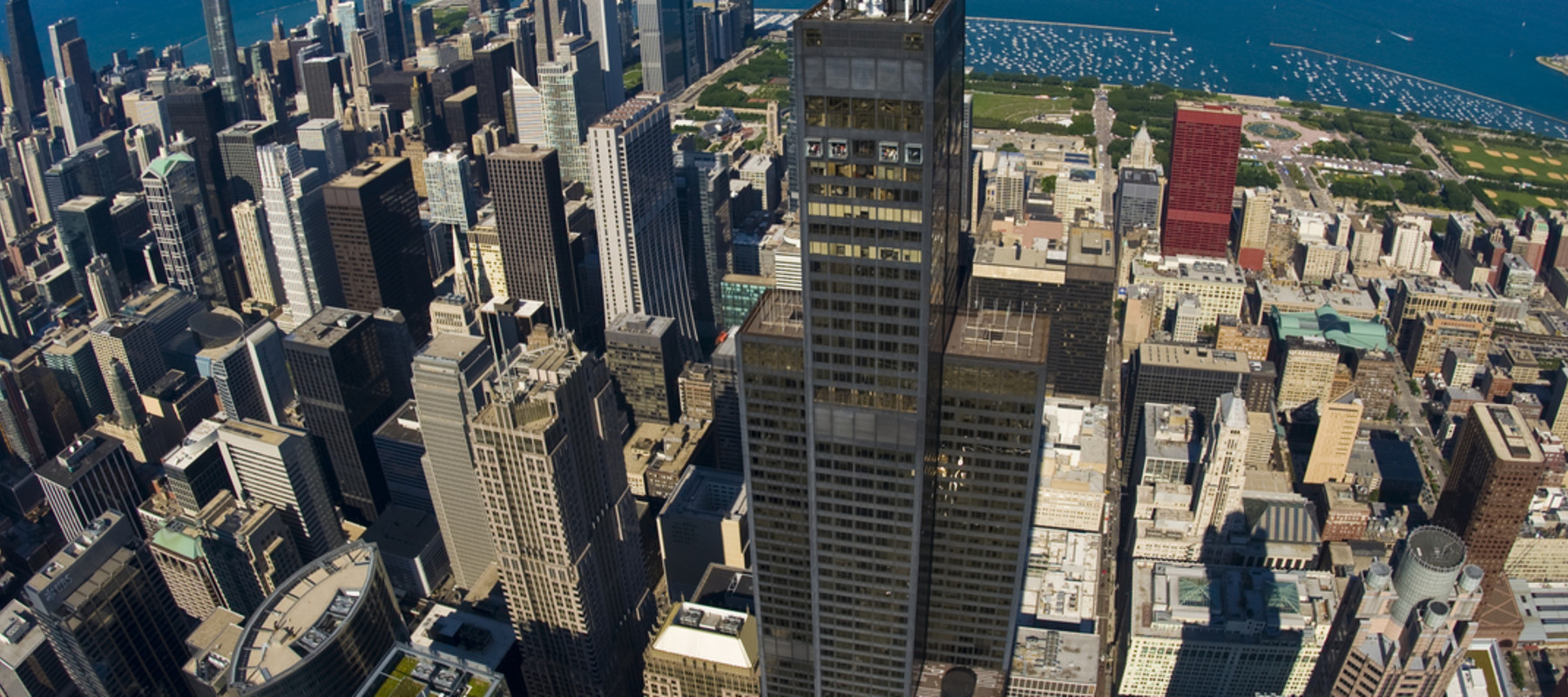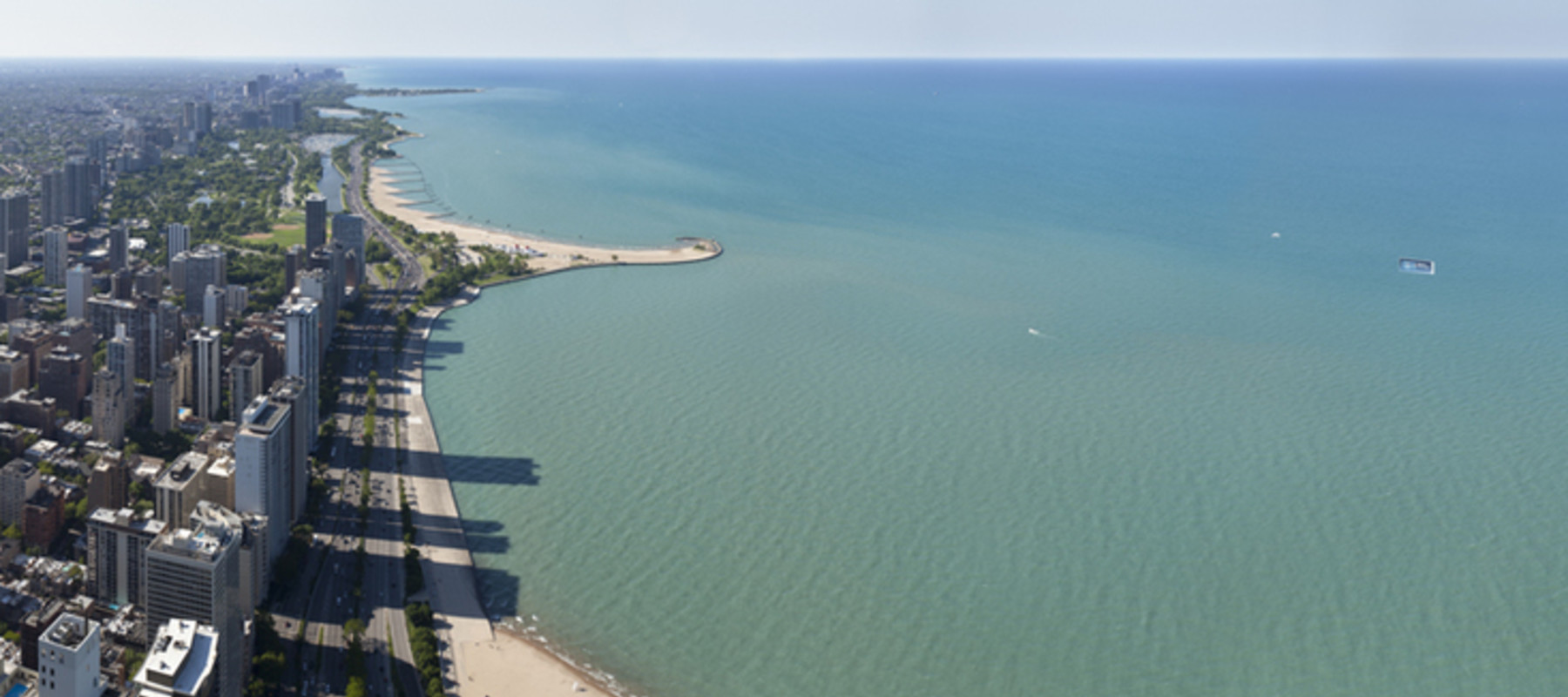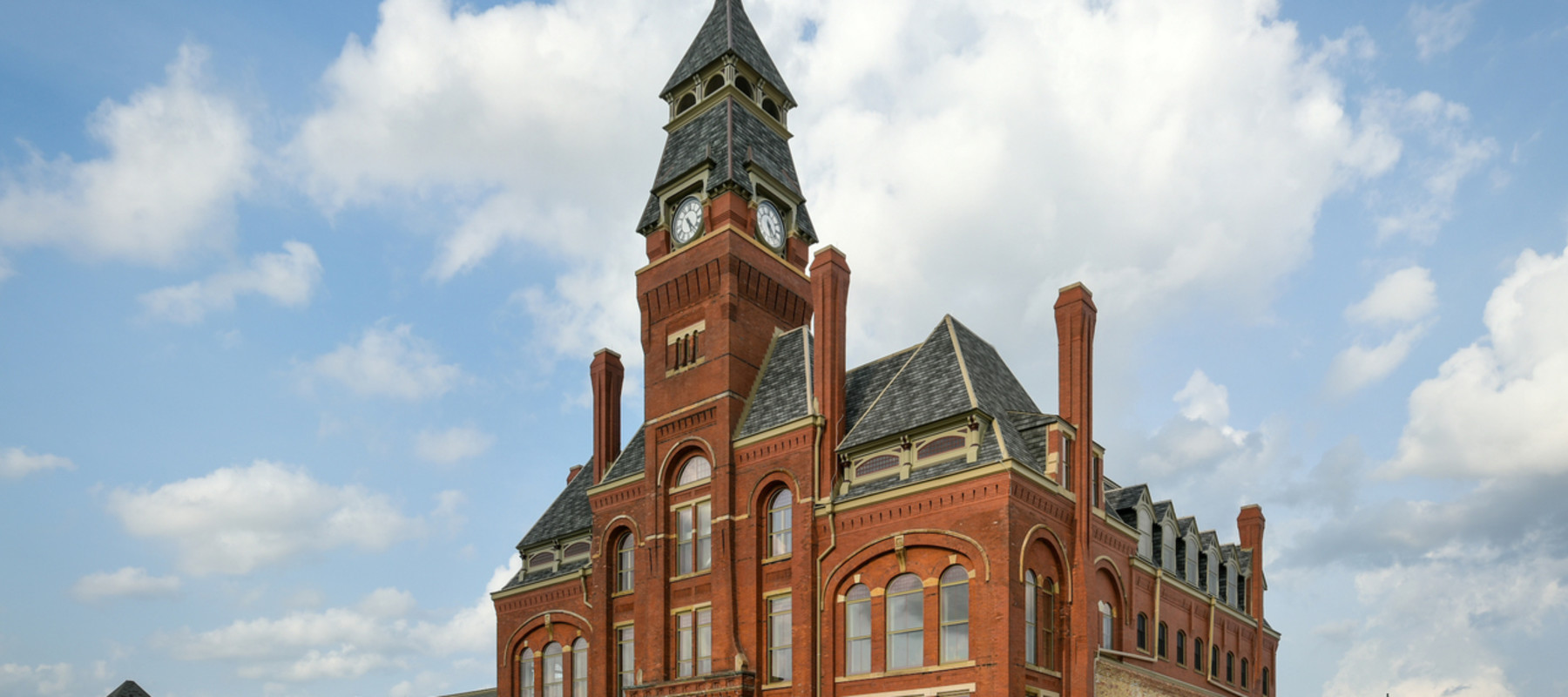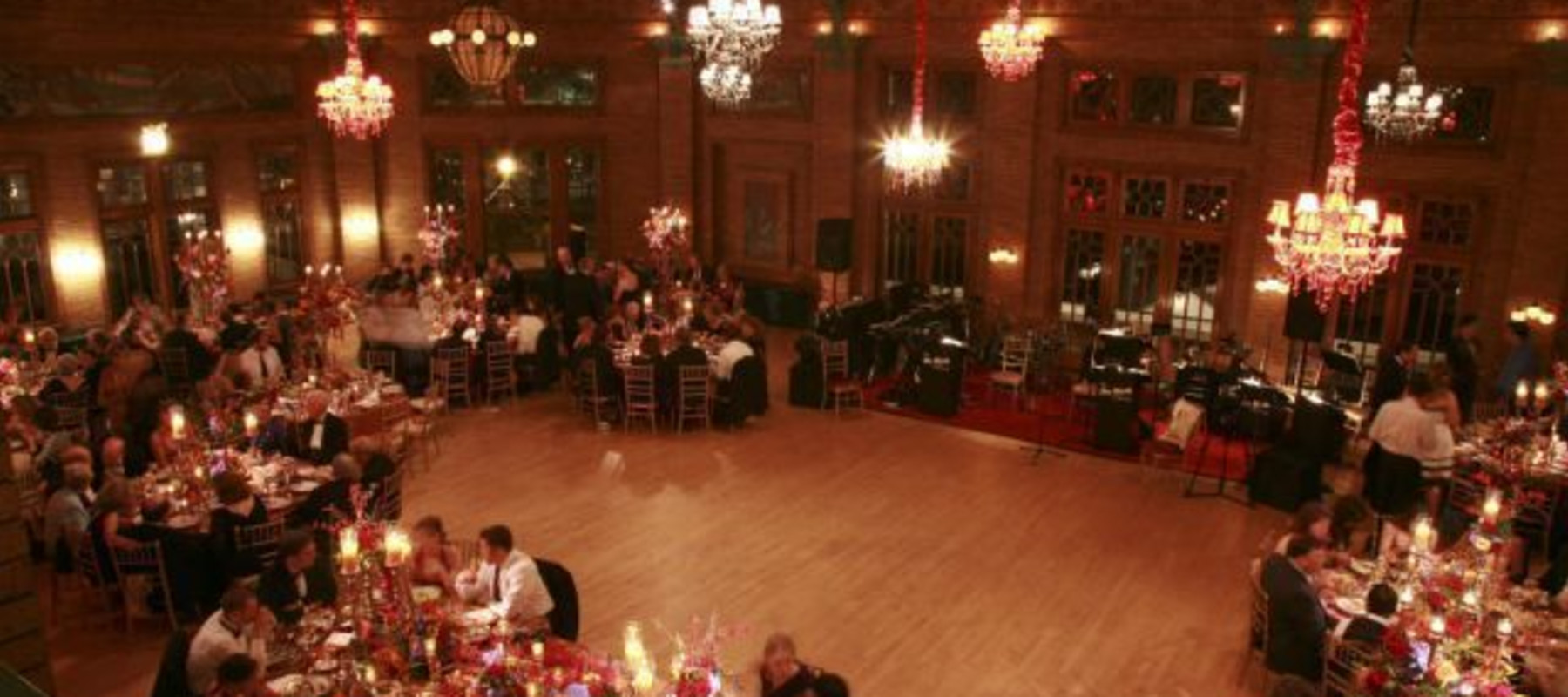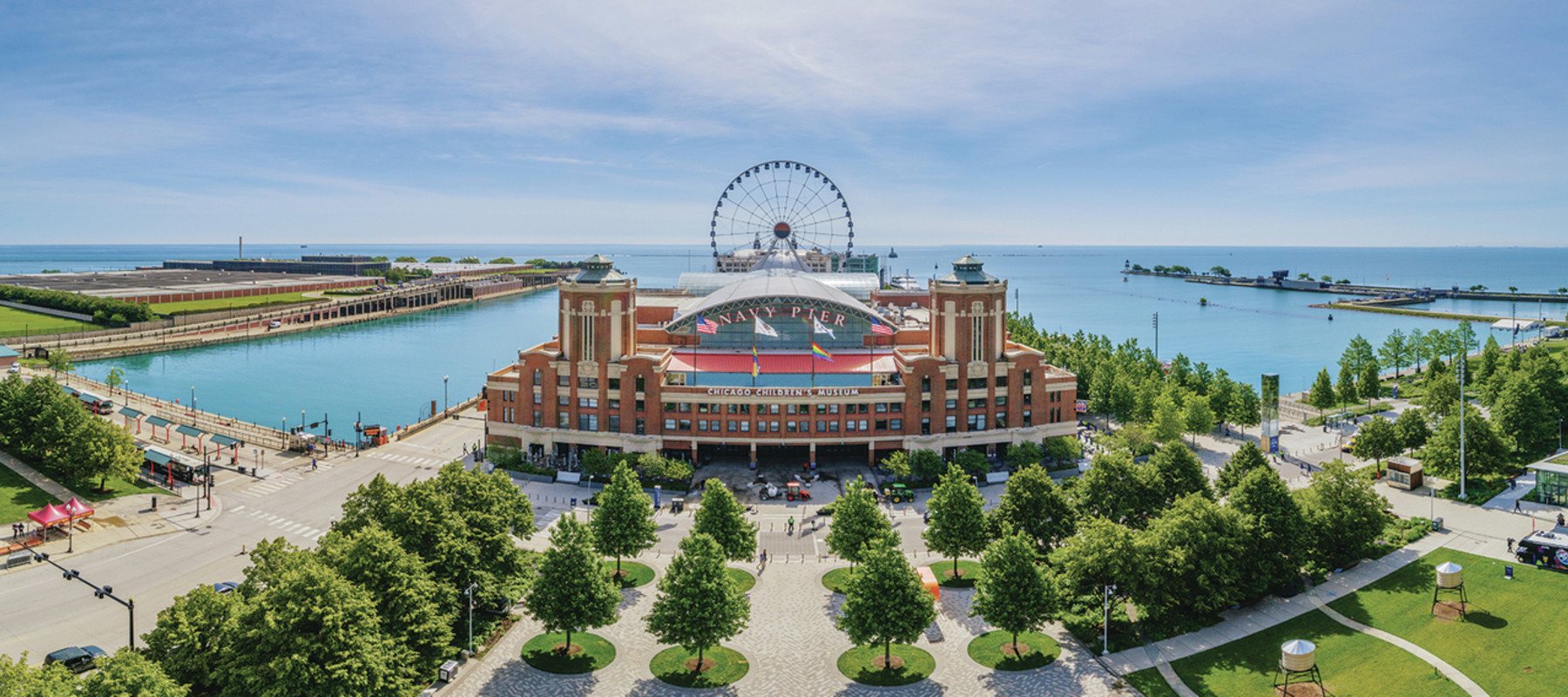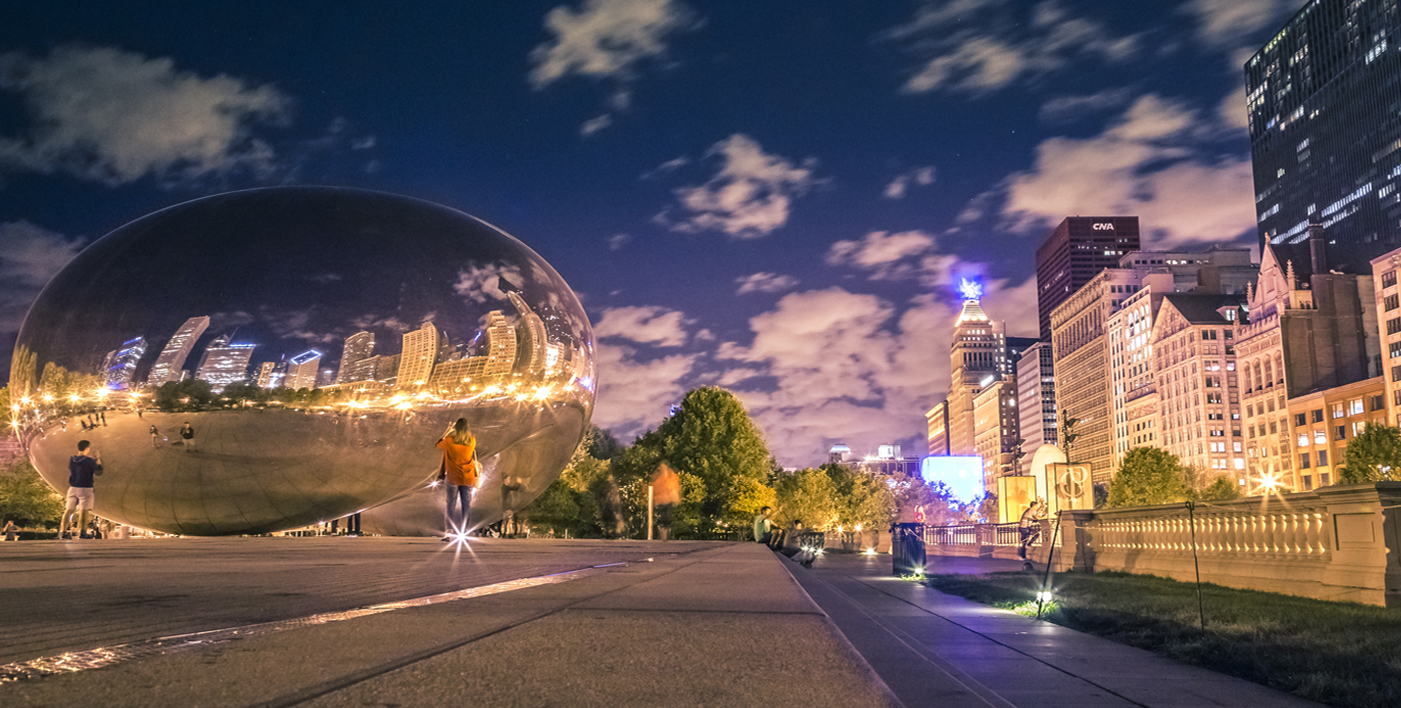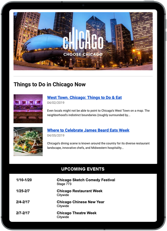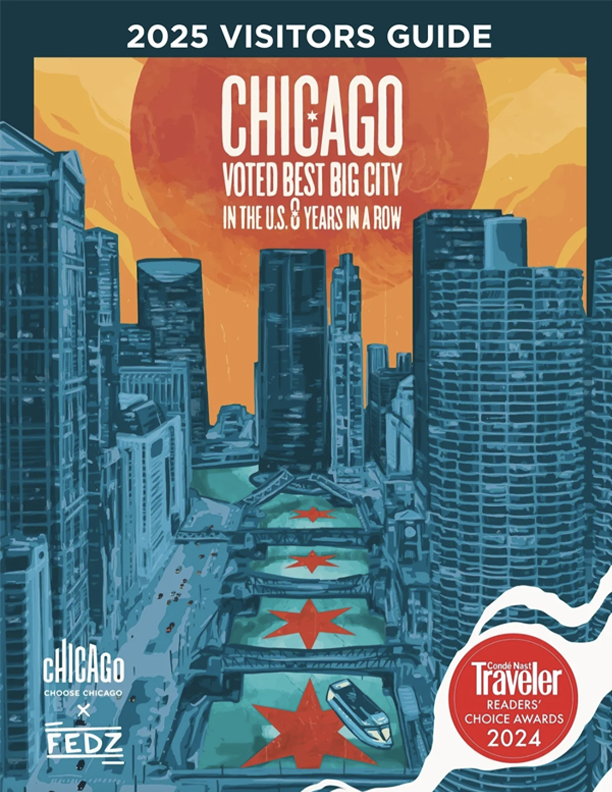Chicago’s top attractions are an essential part of the Chicago experience for any visitor to our great city. From soaring observation decks to lush greenhouses to historic monuments, these accessible Chicago attractions have been thoughtfully designed to welcome each and every guest.
Learn more about accessibility amenities and resources at different Chicago attractions, including resources for guests with mobility devices, sensory sensitivities, vision or hearing impairments, and beyond.
SkyDeck
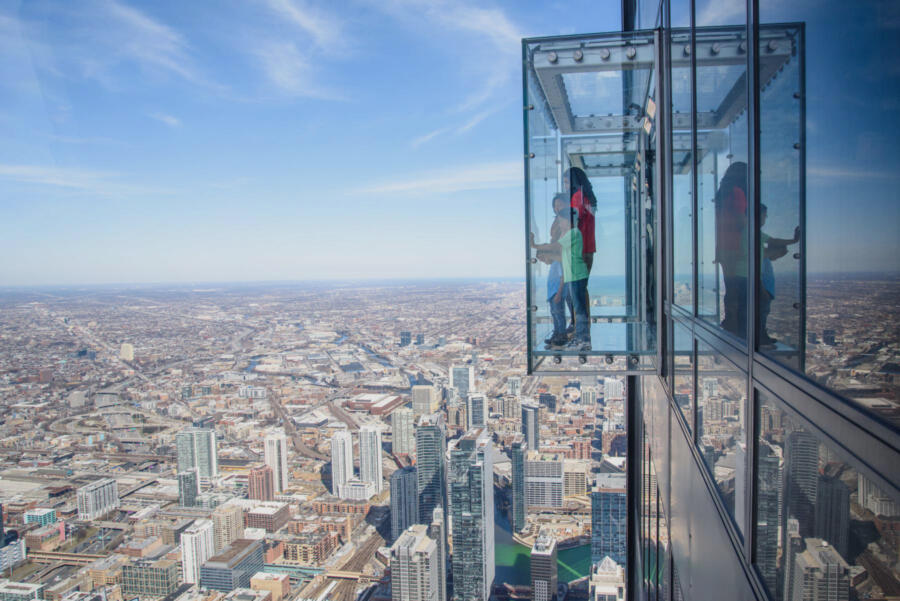
The third tallest building in North America, Chicago’s iconic Willis Tower is home to the highest public viewing area in the United States — SkyDeck Chicago. This can’t-miss Chicago attraction offers sweeping views of the city, Lake Michigan, and up to four states. Start your visit at the interactive museum before heading up to the 103rd floor, where you can step out onto an all-glass balcony called The Ledge.
- Accessibility: Skydeck is completely accessible, ADA compliant, and certified Sensory Compliant by KultureCity.
- Getting there: There is a wheelchair-accessible parking garage located within one block of Willis Tower. The Willis Tower can also be reached via Metra Electric train lines and CTA train and bus routes.
- Getting around: Guests can easily navigate Skydeck with strollers, scooters, and wheelchairs. Ramps and large elevators are available. The Ledge is also wheelchair accessible.
- Wheelchairs: Complimentary wheelchair rentals are available on a first-come, first-served basis. Contact SkyDeck if you would like to reserve a wheelchair.
- Service animals: Service animals are permitted at SkyDeck.
- Sensory-friendly features: Guests with sensory sensitivities are able to bypass Skydeck’s more stimulating museum exhibits. Sensory kits are available onsite and a quiet room is available upon request.
For more information on accessibility at SkyDeck Chicago, contact sales@theskydeck.com.
360 CHICAGO
Located on Michigan Avenue, 360 CHICAGO offers a jaw-dropping vantage point high above The Magnificent Mile, sweeping shoreline, and surrounding cityscape. Grab a coffee, cocktail, or snack at Cloud Bar, where you can sit back and enjoy the view. The observation deck also hosts regular events, including art exhibits, Sky Yoga, seasonal happenings, and more.
- Getting there: Wheelchair-accessible parking near 360 CHICAGO can be booked in advance via SpotHero. 360 CHICAGO can also be reached via CTA train and bus routes.
- Restrooms: Restrooms can accommodate wheelchairs, scooters, and strollers.
- Getting around: The ADA entrance for 875 N. Michigan is located on Delaware Place. From there, guests can take the elevator to the concourse level to access the 360 CHICAGO entrance. Ramps are available throughout the observation deck. Elevators can accommodate wheelchairs, scooters, and strollers.
- TILT: Guests must be standing in order to be on the moving platform within the TILT area.
- Wheelchairs: Complimentary wheelchair rentals are available on a first-come, first-served basis.
- Service animals: Service animals are permitted at 360 CHICAGO.
For more information on accessibility at 360 CHICAGO, contact info@360chicago.com.
Navy Pier

Navy Pier is a family-friendly haven along Chicago’s waterfront, filled with fun attractions, dining, and shopping. Catch a ride on the Centennial Wheel, soar high above the city on FlyOver, hop on a boat ride, or enjoy local cuisine with waterfront views. All with a picture-perfect skyline backdrop.
- Getting there: Accessible parking is located in Navy Pier’s West and East garages. Paratransit services can drop off and pick up passengers from the front main entrance of Navy Pier, on the north dock at the Family Pavilion entrance, and Entrances 1 and 2. All locations are equipped with ramps. Navy Pier can also be reached via CTA train and bus routes.
- Getting around: Automatic doors, elevators, and ramps are installed throughout the Pier.
- Wheelchairs: Navy Pier offers complimentary wheelchair rentals on a first come, first serve basis at Guest Experience information desks. You can request a wheelchair in advance of your visit.
- Centennial Wheel: Navy Pier’s Centennial Ferris Wheel is accessible and able to accommodate a wheelchair. Staff are available to assist.
- Restrooms: All of Navy Pier’s restrooms are accessible.
- Service animals: Service animals are permitted throughout Navy Pier.
- Sensory-friendly features: Accessibility maps identify low-sensory areas and high-sensory areas around the Pier.
Learn more about accessibility at Navy Pier or fill out the accessibility and accommodation request form before your visit.
Lincoln Park Zoo
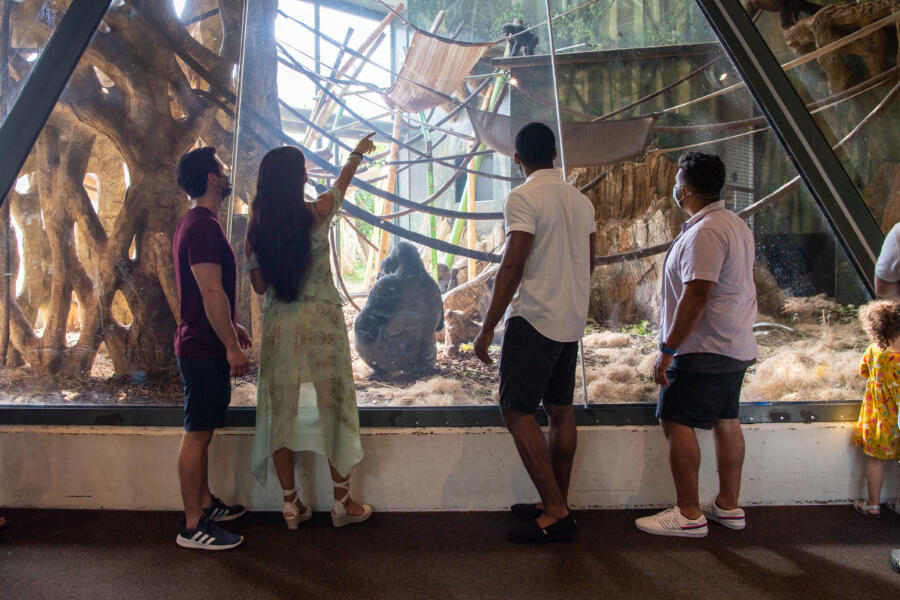
Abel Arciniega, @tequilagraphics
Opened in 1868, Lincoln Park Zoo is among the oldest zoos in the United States. The zoo, which is free and open to the public every day of the year, is a favorite for families and animal lovers. Don’t miss immersive exhibits featuring creatures and critters from around the globe, plus beloved events like the wintertime ZooLights.
- Getting there: The zoo’s parking lot offers accessible parking spaces. There is also accessible street parking nearby. You can also reach the zoo on CTA bus or train lines or via ADA Paratransit Services.
- Getting around: All public buildings have at least one wheelchair-accessible entrance. Many zoo buildings feature automatic doors, elevators, and ramps.
- Restrooms: Accessible restrooms are available at several locations throughout the zoo. An adult changing table is available at Searle Visitor Center.
- Wheelchairs: Complimentary wheelchair rentals are available first come, first served. Electronic Conveyance Vehicles rentals are available for a fee.
- Services for guests who are deaf: American Sign Language (ASL) interpreters and open-captioning are available upon request for zoo events, classes, and programs. The zoo offers scripts, ASL interpretation, and other resources at animal demonstrations.
- Service animals: Service animals are welcome at Lincoln Park Zoo. Learn more about service animals at the zoo.
- Sensory-friendly resources: The zoo offers many sensory-friendly resources, such as a social narrative, quiet rooms, sensory bags, weighted lap pads, and more. Many exhibits have tactile elements to enhance the guest experience.
- Accessible programs: Lincoln Park Zoo offers a wide range of accessible programming for people with disabilities, including a free Memory Enrichment program for people living with dementia.
For more information about accessibility at Lincoln Park Zoo, email access@lpzoo.org or call 312-742-2067.
Pullman National Historical Park
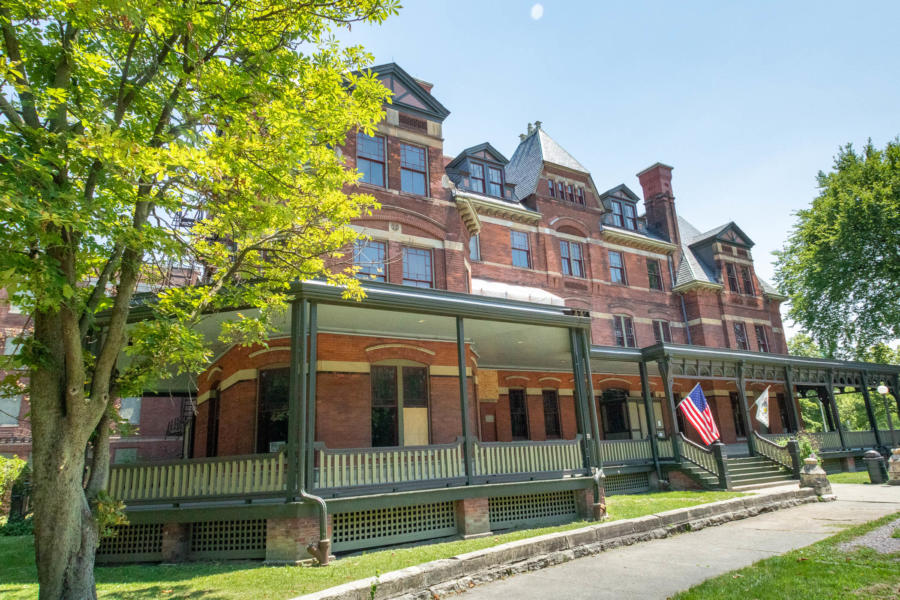
The city’s first National Monument, Pullman is a planned industrial community originally built in the 1880s. Today, the area is a preserved time capsule dedicated to architecture, the labor movement, and Chicago history. While you’re there, make sure to stop at the Visitor Center and the A. Philip Randolph Pullman Porter Museum.
- Getting there: The Visitor Center parking lot features several accessible parking spots. There is also plenty of handicap-accessible street parking around the historic district. Pullman can be reached by Metra Electric train lines and CTA bus routes. Learn more about getting to Pullman.
- Pullman Visitor Center exhibits: The Visitor Center is universally accessible. Audio exhibits include captioned videos, and soundscape descriptions; audio description and assistive listening devices are available. Most exhibits include a raised image, braille, tactile, or audio component. Maps feature raised elements and legends with braille; braille and audio-described versions of brochures are available.
- Wheelchair accessibility: Indoor exhibits are wheelchair friendly. A wheelchair that can be checked out for loan at the Visitor Center front desk. The grounds surrounding the Visitor Center feature accessible sidewalks and ramps.
- Restrooms: The restrooms and drinking fountains follow ADA accessibility design, and there is a family restroom that can accommodate an assistant. Infant changing tables in all restrooms
For more information on accessibility accommodations at Pullman National Historic Park, contact pull_vistorInfo@nps.gov or call 773 928-7257.
Garfield Park Conservatory
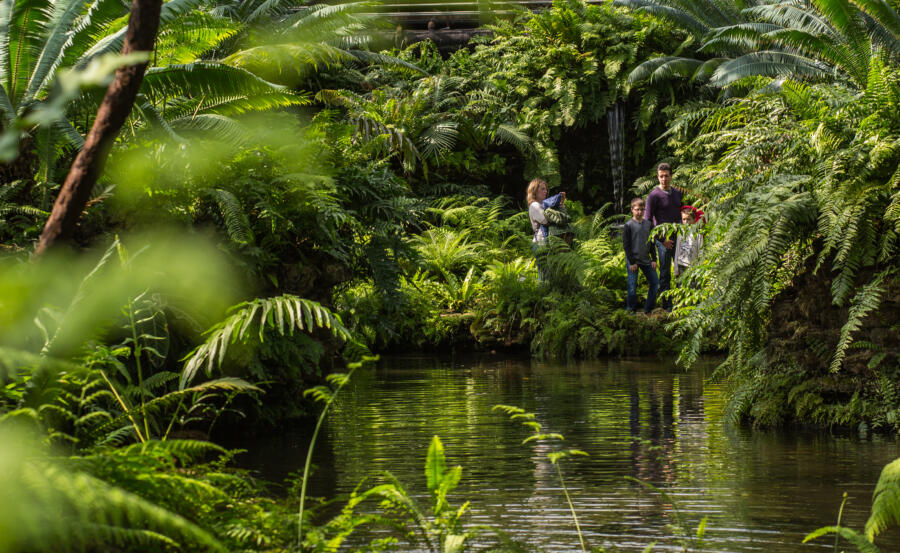
Designed by a legendary landscape architect Jens Jensen, the Garfield Park Conservatory first opened in 1908. Today, it stands as one of the largest and most beautiful conservatories in the nation. With eight indoor gardens and 10 acres of outdoor gardens, the conservatory and surrounding park have endless plant life to explore.
- Getting there: The conservatory has a free visitor parking lot with designated accessible parking spots. There are paved pathways from the parking lot to the building entrance, as well as ramps and a push button automated door. You can also reach the conservatory via CTA bus or train lines.
- Getting around: Seven of the eight indoor display houses have paved pathways that are accessible. Due to its historic landmark status, the staircase leading to the Fern Room does not have a ramp or handrails. Many of the pathways in the outdoor gardens are paved. Some outside pathways are gravel or sand.
- Events: All registration-based programs include an accommodations request as part of the registration process.
- Wheelchairs: There are a limited number of wheelchairs available for free use on a first come, first served basis.
- Sensory-friendly resources: The sensory garden is a large, raised bed that houses a variety of plants perfect for touching, smelling, and examining closely.
Learn more about accessibility at Garfield Park Conservatory. To request an accommodation for an upcoming visit, contact the Garfield Park Conservatory visitors@garfieldpark.org or 773-638-1766 at least 24 hours in advance.
More accessible Chicago attractions
Explore accessibility resources and accommodations at more top Chicago attractions:


